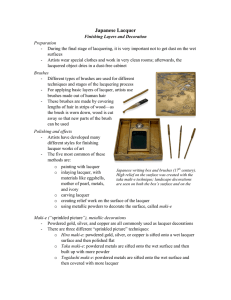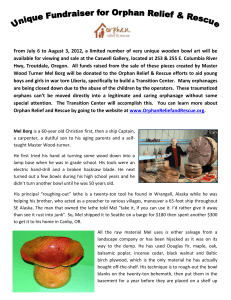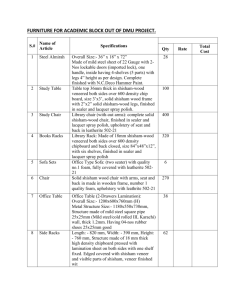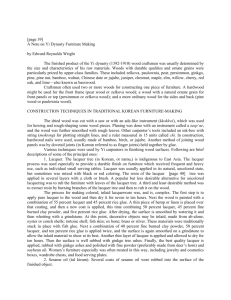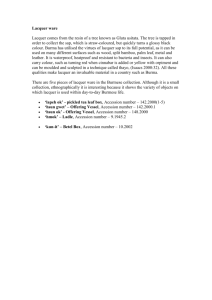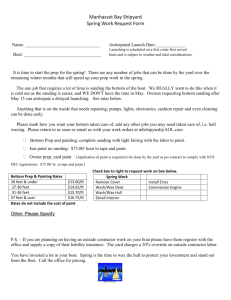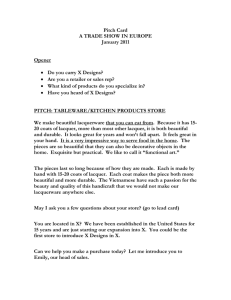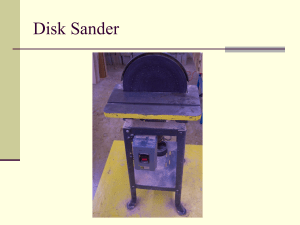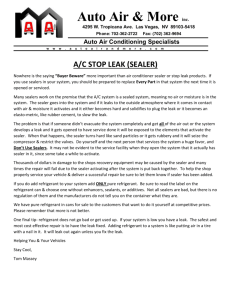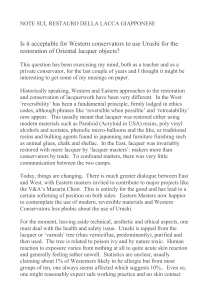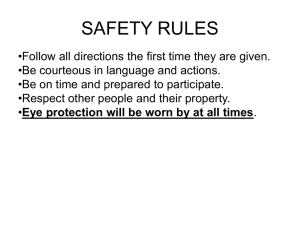October Meeting - 2013
advertisement
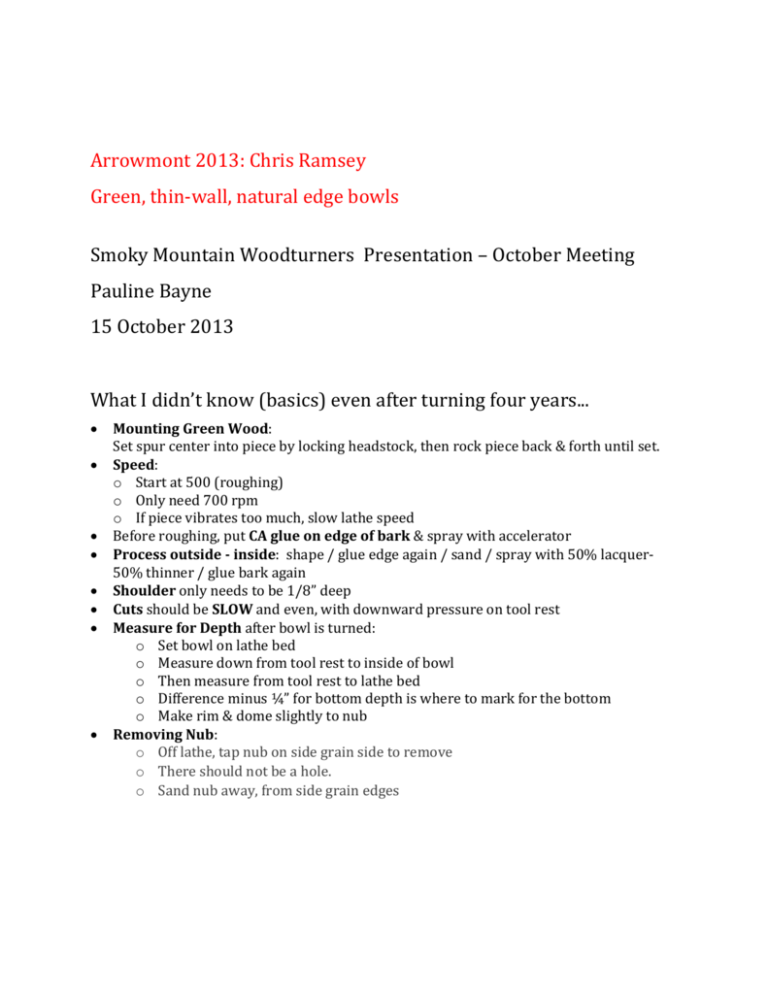
Arrowmont 2013: Chris Ramsey Green, thin-wall, natural edge bowls Smoky Mountain Woodturners Presentation – October Meeting Pauline Bayne 15 October 2013 What I didn’t know (basics) even after turning four years... Mounting Green Wood: Set spur center into piece by locking headstock, then rock piece back & forth until set. Speed: o Start at 500 (roughing) o Only need 700 rpm o If piece vibrates too much, slow lathe speed Before roughing, put CA glue on edge of bark & spray with accelerator Process outside - inside: shape / glue edge again / sand / spray with 50% lacquer50% thinner / glue bark again Shoulder only needs to be 1/8” deep Cuts should be SLOW and even, with downward pressure on tool rest Measure for Depth after bowl is turned: o Set bowl on lathe bed o Measure down from tool rest to inside of bowl o Then measure from tool rest to lathe bed o Difference minus ¼” for bottom depth is where to mark for the bottom o Make rim & dome slightly to nub Removing Nub: o Off lathe, tap nub on side grain side to remove o There should not be a hole. o Sand nub away, from side grain edges Ramsey Sanding Tips Slow the lathe & put it in reverse (always for sanding) Use angled power sander Keep off dead center most of the time; it will sand fastest Move smoothly from center to edge, not back & forth Use edge (1/4-1/3) of sanding surface Keep sander moving very slowly and at a downward angle to prevent catch For problem marks or lines, turn bowl by hand or let it move only from the effect of the sander. Do this first. Power sanding does not mean that the lathe needs to be on! Lathe speed: about 125 rpm for outside; about 300 rpm inside Grits: 80, 120, 150, 180, 220, 320, 400 Can spritz with water to sand out all of the tear out After sanding, paint with lacquer mixture Collaboration: Marbling Turned Wood Pat K. Johnson – Chris Ramsey – Greg Streif On Wednesday evening, we attended a demonstration of marbling on paper and silk fabric in another studio. The idea came up to experiment with the marbling technique on turned wood. Thursday morning Chris did a demo of the process for making a miniature hat, and the marbling test occurred after class. He and others masked off the parts of their pieces that were not to be marbled. Pat K. Johnson did the coloring—medium in a bucket, add color and make the pattern, dip and swirl the piece, dry for 30 minutes and rinse with water. The crowd of turners and marblers was excited, and the results were outstanding! Chris Ramsey's choices and methods for CA glue and lacquer: The lacquer and sanding sealer I use is made by Jellico, Inc. located in Louisville, KY. My contact person is Greg Lanning, (Jellico paints) 502-262-5754 cell, 502-772-2547 gwlanning@jellicocoatings.com You can tell him I referred you to him. The following is the part numbers with a description of mixture percentages. I hope this is helpful and that your talk will be fun and informative. The lacquer thinner is: LT-0117/5LR- LACQUER THINNER The sanding sealer is: LS-0318-PC/5LC-PRECATALYZED LACQUER SEALER The sanding sealer is mixed 50% sealer and 50% thinner. I use a high volume low pressure (HVLP) sprayer to apply the sealer and apply a light “tack coat” for the first application. Allow it to dry for about 5 minutes then apply a heavier coat. Repeat applications until you have four or five coats of sealer. There is no need to sand in between coats unless you get a run. It may look like it has an orange peel texture but I can assure you there is no need to sand it smooth. Allow it to dry for about one or two hours then apply the top coat of lacquer. The lacquer is: LF-0853-A-PL/5LC-5/8 HL PRECATALYZED LACQUER The mixture of lacquer is 70% lacquer mixed with 30% thinner. Mix well and apply one heavy coat, Allow the piece to dry for several hours. I allow it to dry overnight. I always spray the outside of a bowl or vessel first. I then allow it to dry and cure overnight then repeat the process on the inside of the bowl or vessel the following day.
